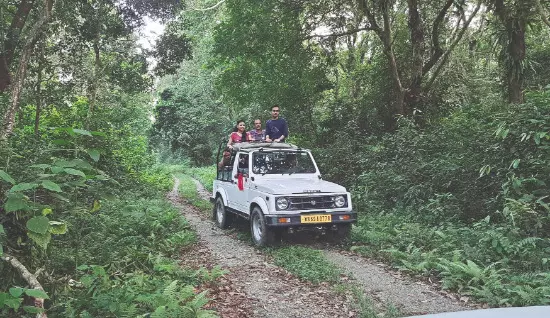Jaldapara goes plastic-free as safaris resume on September 16

ALIPURDUAR: In a bid to keep Jaldapara National Park free from harmful plastic, the Forest department is introducing a new initiative as safaris resume on September 16 after a three-month closure in compliance with government regulations.
From this season, tourists will be handed paper bags at the start of their safari in designated vehicles. Visitors will be asked to either deposit plastic bottles, packaged snacks, and other plastic items before the ride begins or dispose them in the paper bags provided. Drivers and guides have been instructed to remain alert and ensure strict adherence to the new rules.
Since the beginning of this year, Jaldapara authorities have enforced a “zero-tolerance” policy on plastic use. Over the past seven months, forest workers have conducted extensive drives to collect plastic waste left behind by tourists inside and around the park.
“Whether knowingly or unknowingly, due to lack of awareness, people often make mistakes that harm the environment,” said Nabikant Jha, assistant wildlife warden of Jaldapara National Park. “This time, paper bags will be distributed at the start of every safari, and collected at the end. We are also encouraging tourists to carry water in flasks instead of plastic bottles.”
On average, more than 500 people visit Jaldapara safaris daily. Officials stress that even if a handful of visitors leave behind plastic, the ecological impact can be severe. Plastic ingestion poses a serious threat to wildlife, including Jaldapara’s pride—the one-horned rhinoceros. The park is currently home to nearly 350 rhinos, alongside several other endangered species, making vigilance all the more crucial.
Meanwhile, at the Buxa Tiger Reserve, forest officials have been urging tourists not to carry plastic for several years. “Once we explain the reason, tourists usually comply,” said field director Apurba Sen. “The bigger challenge lies within the reserve’s human settlements, which is why awareness campaigns are held throughout the year. We remain hopeful that people will soon recognise the gravity of the problem.”



